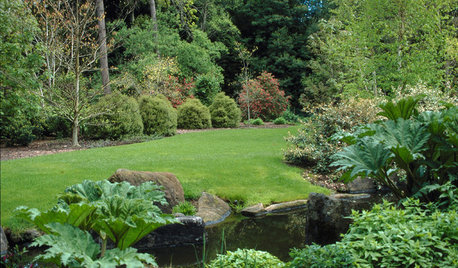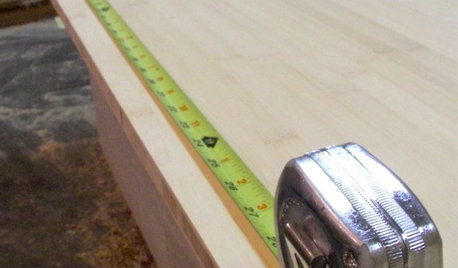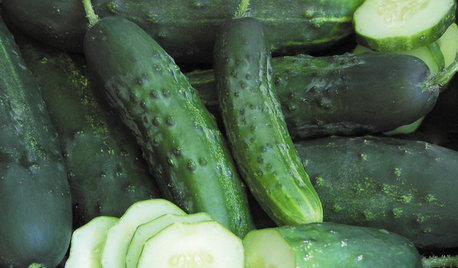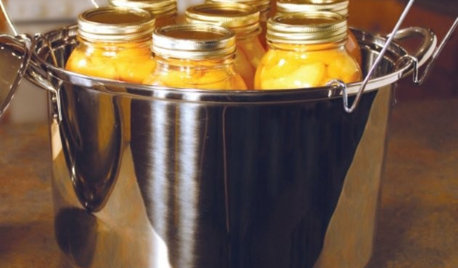Pickling Newbie....Need Help!
greenthumbnick
15 years ago
Related Stories

GREEN BUILDINGHouzz Tour: Pickle Factory Now an Energy-Wise Live-Work Space
A charming but poorly insulated 1880s Philadelphia commercial building becomes a spacious energy-efficient home and studio
Full Story
GARDENING GUIDESYou Don't Need Prairie to Help Pollinators
Woodlands, marshes, deserts — pollinators are everywhere
Full Story
MOST POPULAR9 Real Ways You Can Help After a House Fire
Suggestions from someone who lost her home to fire — and experienced the staggering generosity of community
Full Story
ORGANIZINGStick to Your Resolutions: Help From a Pro Organizer
Accomplish your goals — from decluttering to rediscovering fitness — for real this time
Full Story
ORGANIZINGHelp for Whittling Down the Photo Pile
Consider these 6 points your personal pare-down assistant, making organizing your photo collection easier
Full Story
WOODWORKING7 Must-Have Measuring Tools for Woodworking
Whether you're a newbie DIYer or building cabinets from scratch, using the right woodshop tools makes all the difference
Full Story
SUMMER FRUITS AND VEGETABLESSummer Crops: How to Grow Cucumbers
Pick a peck for pickles or opt for fewer and raw — no matter how you slice them, cucumbers are great for summer gardens small to large
Full Story
SMALL HOMESHouzz Tour: An Illinois Loft Sparks Renovation Fever
Home improvement newbies (and newlyweds) find joy and a new income source while redoing their space themselves
Full Story
PRODUCT PICKSGuest Picks: Canning, Preserving, Steaming, Dehydrating
20 products to help make fall produce last through the season and beyond
Full Story
MOST POPULARHow to Reface Your Old Kitchen Cabinets
Find out what’s involved in updating your cabinets by refinishing or replacing doors and drawers
Full Story





lil_half_pint
Linda_Lou
Related Professionals
Fitchburg Landscape Architects & Landscape Designers · Leawood Landscape Architects & Landscape Designers · Bellefontaine Neighbors Landscape Contractors · Darien Landscape Contractors · Mission Landscape Contractors · Ridgewood Landscape Contractors · Setauket-East Setauket Landscape Contractors · Ferguson Landscape Contractors · Anderson Roofing & Gutters · Boone Roofing & Gutters · Fairfax Roofing & Gutters · Newnan Roofing & Gutters · Pittsburgh Roofing & Gutters · Cave Spring Roofing & Gutters · Centreville Driveway Installation & MaintenancegreenthumbnickOriginal Author
ksrogers
greenthumbnickOriginal Author
ksrogers
gran2
ksrogers
readinglady